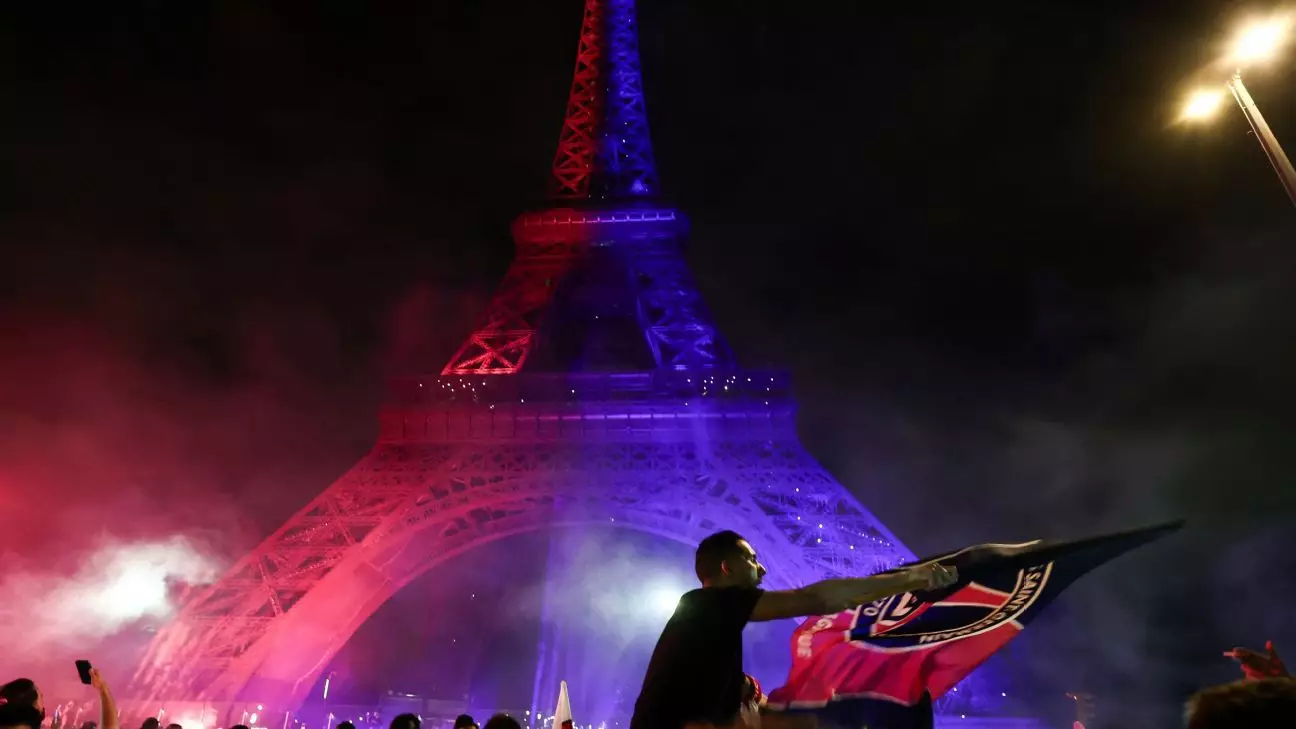The recent celebrations surrounding Paris Saint-Germain’s monumental victory in the UEFA Champions League undoubtedly encapsulated the essence of sport: unity, joy, and the collective elation of fans coming together to herald their team’s accomplishment. However, what began as a cherished moment for PSG supporters quickly descended into chaos and tragedy. The fatalities of two fans, coupled with the grave injury of a police officer, starkly remind us of the potential perils embedded in public celebrations. While many reflected on a historic moment for PSG, the shadow of violence obscured the glory.
The Dual Facets of a Historic Victory
PSG’s 5-0 triumph over Inter Milan not only marked a critical milestone in the annals of football but was also a demonstration of the club’s long-awaited aspiration materializing after immense dedication and effort. The Eiffel Tower illuminated in PSG colors was a stunning sight, symbolizing pride and cultural significance. Thousands poured onto the streets, generating an infectious atmosphere of jubilation. Yet, even amid joyful celebrations, one cannot ignore that societal shadows lurk behind exuberance, particularly in such historic moments.
The joy was tragically punctured when violence marred the night. Reports of a 17-year-old boy’s stabbing during a celebratory gathering spotlight the real risks involved in large-scale public events. In a separate incident, a man in his twenties lost his life in a traffic collision while festivities unfolded in the streets of Paris. This stark contrast of an evening meant for joy emphasizes the unpredictability that often accompanies mass gatherings.
Unraveling the Night’s Unrest
The disturbances following PSG’s victory, including instances of looting and violence, led Paris police chief Laurent Nunez to describe the events as a result of “thousands of people who came to commit acts of violence” rather than to share in the sportsmanship of the occasion. This raises critical questions about collective behavior in celebratory contexts. How can joyous celebrations devolve into chaos? Why do specific individuals choose to exploit these moments, forsaking the communal essence of sport?
Observations of the Paris streets revealed a poignant picture: despite the chaos, pockets of celebration persisted, with fans climbing on monuments and joyously revving engines in their motorcycles. This showcases a dichotomy present in such events; while instances of aggression captured headlines, the spirit of festivity still found its roots among many participants.
The Imperative for Enhanced Security Measures
In light of recent events, the need for stronger security measures during public celebrations cannot be overstated. The Paris police department’s deployment strategy, including the use of tear gas and water cannons, reflects a preparedness to confront potential disturbances preemptively. However, the efficacy of such measures can be debated. Could a more focused approach on community engagement during these events foster a sense of ownership among attendees, potentially diminishing violence?
Nunez’s remarks on the concerns echo a sentiment growing in response to public festivities; it’s imperative to balance security with celebration. These are complex issues that require a multi-faceted approach with the involvement of local authorities, community leaders, and, importantly, the fans themselves.
The Lessons to Be Learned
Ultimately, PSG’s historic victory is a poignant reminder not just of sporting excellence but of the delicate balance between celebration and safety. As football continues to unify fans across regions and cultures, authorities must recognize the importance of not only providing security but also fostering an environment where true communal celebration can flourish devoid of violence.
The incidents that transpired alongside PSG’s victory compel us to examine our collective behavior in public spaces. As we celebrate our teams and shared victories, the underlying principles of respect and camaraderie must not only persist but prosper, ensuring that such moments, intended for joy and unity, are not undermined by violence and chaos.

